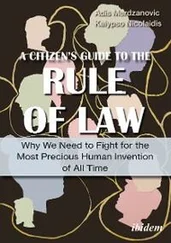After gaining control, Gorby quickly proved that even though he was a skilled political climber, he had a tin ear for running a huge, totalitarian government. His first proposal targeted alcohol reform. Needless to say, in a country where the daily consumption of vodka is vast and as common an experience for the average citizen as standing in line with muddy boots, this was perhaps his most truly radical step. And clearly doomed. The program included new laws for prosecution of people drunk at work, raising vodka prices, and cutting movie scenes of alcoholic consumption. His program succeeded in gashing a hole in the federal budget (as production switched to the black market) and in retrospect was Gorby’s first inadvertent step toward the complete dissolution of the Soviet Union. Drinking less did not apparently appeal greatly to Soviet citizens, as the regular overconsumption of alcohol seems to have played a key part to staying inured to a bleak daily life.
Gorby also had big ideas for the economy. His career had started when he helped his father harvest a record crop after World War II on a collective farm near his home in Stavropol, a sleepy farming region on the Caspian Sea. This accomplishment, for which he was awarded the Order of the Red Banner of Labor — a meaningless trinket highly valued by the chaff in the great command economy — apparently imbued him with a lifelong conviction that Soviet socialism could actually work. He held on to this view despite the persecution of his grandparents, who were labeled bourgeois farmers during Stalin’s forced collectivization of farms.
Gorby’s economic plans were novel in Soviet history because they didn’t involve blaming, killing, or relocating large segments of the population for no apparent reason. Harkening back to that successful harvest in 1947, Gorby felt that the time was ripe to allow some measure of freedom for small business operations, know as “collectives.” These encompassed such basic things as restaurants, which for the past seventy years the party had considered impossible to serve someone food outside the home without it being subjected to party control.
In April 1986 the #4 Chernobyl nuclear reactor exploded, and Gorby was faced with his first major crisis. At first, the Soviet system responded in reflexive fashion by refusing to respond. After three days, however, workers at a Swedish nuclear plant found their work clothes covered in radioactive particles while duly noting that their nuclear plant had not exploded. A worldwide search for an exploded nuclear reactor quickly led to the Soviet Union, and Gorby finally confirmed eighteen days later, on television, that there had in fact been a massive technical malfunction in Chernobyl. This response, although extraordinarily belated, was at its most basic an honest one. It was a watershed moment for the regime.
Establishing a pattern of taking small, achievable steps toward fantastically impossible goals, in 1986 Gorby allowed Andrei Sakharov, the Soviet intellectual hero and father of the Soviet hydrogen bomb, to return after six years of internal exile. This tiny step was the first tacit acknowledgment of the seventy years of murder, terror, and other errors of the regime.
In 1987 Gorby proposed multicandidate elections and permitted the appointment of nonparty members to government posts. He also passed laws giving cooperative enterprises more independence, although curiously no provisions were made to provide a functioning political, legal, financial, or economic framework to support the cooperatives.
Gorby was inadvertently given a boost later in 1987 when a young West German named Mathias Rust landed a small plane just outside the Kremlin in Red Square. This embarrassment presented Gorby the opportunity to clean house at the defense ministry. Gorby’s new appointment, Dmitri Yazov, a World War II veteran, seemed perfect for the dismantling of the massive and inept Soviet army. Yazov later thanked Gorby by joining the coupsters.
Gorby had succeeded in opening a window to clean out the musty smell of Soviet history, but he now found himself subjected to an unending beat of criticism on the slow pace of reform, which came from the growing legion of citizens unsatisfied by their newfangled opportunity to complain in public without being hauled off to a Gulag. Gorby thought they would be thankful and it would spur them on to further reforms. It didn’t quite work out that way.
Chief among these critics was Boris Yeltsin, the party leader of Sverdlovsk, an industrial area in the Urals Mountains, and one of Gorby’s first political appointments to bite the hand that fed him. Yeltsin was different in that his betrayal began almost immediately, was pronounced publicly, and seemed to have been arrived at through the use of some sort of common sense. Yeltsin, despite an incautious, probing intelligence that had prodded him to disassemble a hand grenade as a youth, costing him two fingers, had risen steadily through the party.
Undaunted by the fact that his father had been tossed in a Gulag with a few million others by the Communists, Yeltsin had joined the party after obtaining his college degree in construction and rose through the ranks in Sverdlovsk to become party boss of the region. His practical achievements, such as demolishing the house where the tsar and his family had been killed by the founders of the party in 1917, were so impressive they brought him to Gorby’s attention. Yeltsin was appointed an alternative Politburo member (the real seat of power in the Soviet Union) and the head of the Moscow party apparatchik apparatus in late 1985.
Yeltsin, who perhaps significantly was never given a cute nickname by the Western press, proved to be a master of showboating to a public impatient of the slow pace of reforms. This blatant politicking by Yeltsin annoyed Gorby so much that he found himself reverting to Communistic doublespeak and criticized Yeltsin for “political immaturity.” Gorby, establishing a pattern, neglected to toss him into the Gulag and soon found himself in the battle that was to define his career.
Yeltsin’s criticisms of the glacial pace of reform continued, and by 1987 he so irritated Gorby that the leader stripped Yeltsin of his party job of running Moscow. Yeltsin, however, was handed a get-out-of-jail-free card by Gorby in 1989, when elections for the first and last Congress of People’s Deputies took place. These elections were revolutionary because they were competitive, people actually voted, and few if any candidates received more than 100 percent of the vote. Handily brushing aside a smear campaign intended to wound Yeltsin for being a fall-down drunk, it perhaps backfired and helped his cause. He won a seat to the Congress and was back in the game.
Despite the microscopic advances in democracy permitted by the party, to Gorby’s annoyance the republics of the USSR that had been under forcible Soviet rule for decades were still unhappy and continued to press for their independence. In Tbilisi, Georgia, in April 1989, anti-Soviet demonstrations were put down by the Soviet army, resulting in twenty deaths and thousands of injured. The Soviet put-down troops were led by Gen. Alexander Lebed, a tough-as-nails commander who had made his bones putting down disturbances in the Crimea and who distinguished himself by claiming he was one of the few Russians who didn’t drink. He was to play a key role in Gorby’s coup.
In 1989 the Soviets also finally gave up trying to turn the people of Afghanistan into good Soviet citizens. They declared defeat and drove home. East Germany, also restive and sensing the winds of change in the air, allowed the Berlin Wall to be torn down in November 1989, which quickly led in turn to Czechoslovakia, Poland, and Romania abandoning the Soviet’s camp. The people of Eastern Europe had clearly lost all fear of the vaunted Red Army.
Читать дальше












